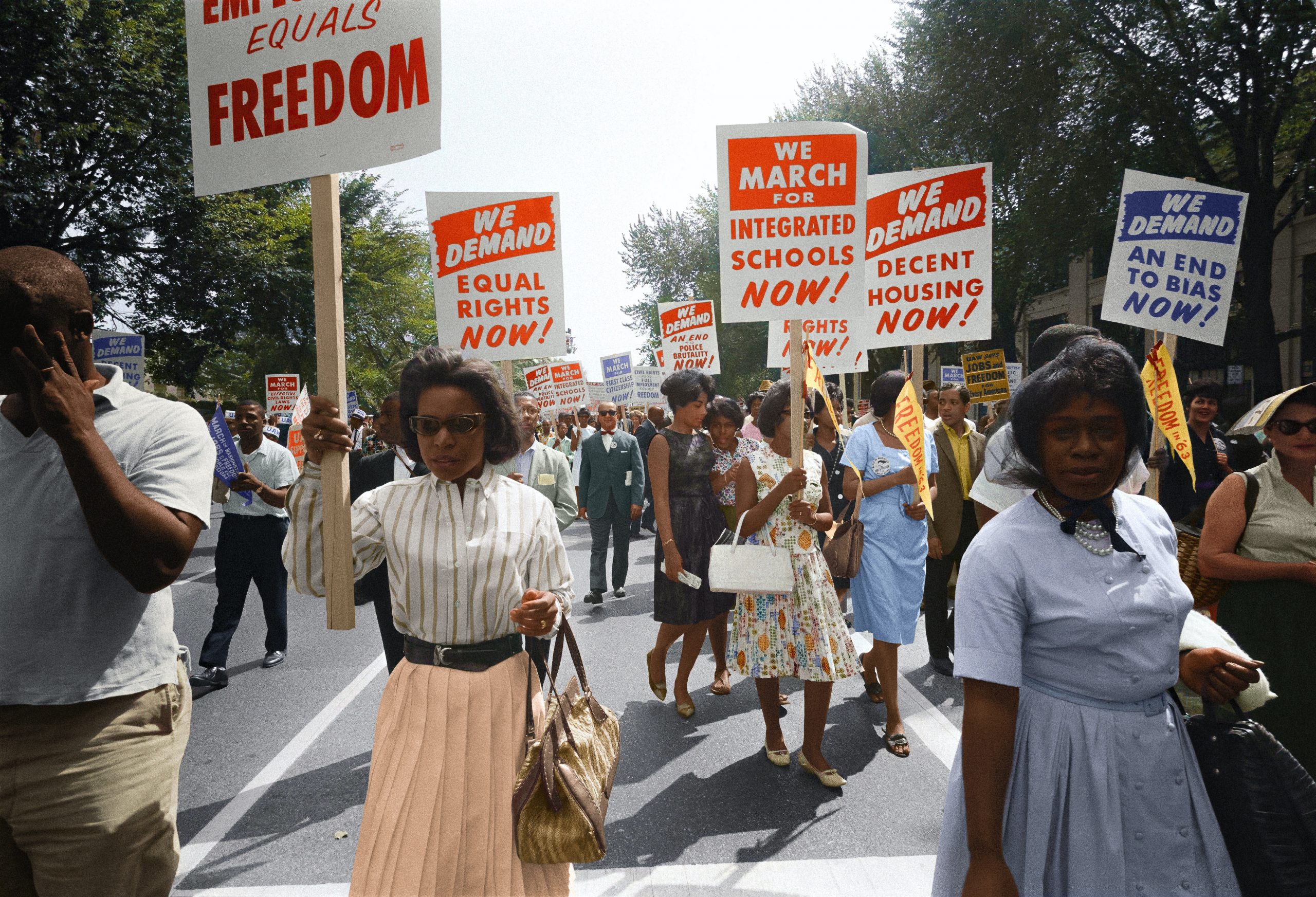Happy Juneteenth!

The Land of the Free?
The land of the free didn’t always freely offer liberty to everyone. In its earliest days, most black people arrived in America in chains. Regardless of who sold them, free black labor stains early American history. While most Americans could celebrate independence from Britain each year, the majority of black Americans had no such celebration. They were not from England nor were they independent of their masters.
After a brutal war, Abraham Lincoln signed the Emancipation Proclamation on January 1, 1863. Slavery officially became illegal and black people were “free”, yet little to no enforcement of such freedom came until June 19, 1865. For the slaves, justice had not yet been served.
On that fateful day, two thousand Federal soldiers came to Galveston, Texas and officially declared and enforced freedom from all slaves. We were physically free and finally able to breathe.
Why Are We Celebrating Today?
Juneteenth, a combination of the words June and Nineteenth, celebrates Independence Day for many black Americans. We haven’t replaced the July 4th Independence Day, but rather we added a new way to celebrate black freedom. Though many challenges and much strife faced slaves even after their emancipation, the psychological and physical bondage finally ended.
I’m looking forward to grilling out, turning on celebratory music, and spending this day reflecting on the grace of God in my life. I’ll be honest, I did not learn about Juneteenth growing up. There was even a time when I didn’t understand why black people celebrated it. But after reading slave narratives of Christian pastors and leaders, I have been able to understand and celebrate such a momentous occasion. I am not ashamed to celebrate black victories.
Juneteenth doesn’t attempt to re-segregate America as Candace Owens and others have erroneously asserted. Rather, celebrating victories in the black community promote the dignity of black image-bearers of God. Don’t shun Juneteenth as a novel woke celebration invented by liberals in 2021. Juneteenth celebrations began in 1866, though the celebrations are being now being popularized.
In fact, Juneteenth is a day for all Americans to celebrate. If you’ve been liberated from your sin, Juneteenth presents an opportunity to reflect on your spiritual freedom as well as the freedom of your black brothers and sisters in America. By God’s grace, a free black man is writing this very blog post.
Should Christians Celebrate Juneteenth?
As a Christian, I strive to think biblically about cultural matters. We shouldn’t blindly celebrate everything the world celebrates. Yet we also shouldn’t reject anything simply because our cultural comforts and preferences are challenged. Disrupting the status quo often leads to great and necessary changes in our hearts and lives. Perhaps Juneteenth can prod you to rejoice more in the freedom of black Americans while longing for the freedom of all enslaved people worldwide.
The Bible makes plain that kidnapping and enslaving people violates His holy and just standard (1 Timothy 1:10). Further, the Bible repudiates ethnic-based partiality as the norm for His people. Great preachers and men of God like Lemuel Haynes and Charles Spurgeon outright rejected the practice of chattel slavery as ungodly and wicked.
As children of God, we are called to rejoice with those who rejoice (Romans 12:15). As a Christian who is black, this is a day of rejoicing for me! When I reflect back on chattel slavery, I reflect on the pain of the many black people who came before me. Some of my own ancestors were likely working as forced laborers in excessive heat and cold, being beaten and abused, all while being told that they were subhuman. I ponder the suffering endured by many black people who trusted in Jesus despite the harsh, gut-wrenching conditions they lived in as they journeyed as pilgrims to the Promised Land.
They worked. They prayed. They sang. And entered heaven never tasting freedom.
Specifically, I think about the old African preacher who was freed from slavery because he could preach the gospel. Yet when he looked around, the other black people around him were still in chains and bondage crying out for help. I wonder if the slaves resonated with the beatings, bruises, and brutality Jesus faced as He carried His cross. Perhaps Christian slaves had great hope in their condition because they read of Paul in chains suffering for the gospel. I bet they prayed and prayed for their freedom.
And on Juneteenth, their prayers for freedom were finally answered.
Freedom Feels a Little Different Now
2020 was a year they forced me to really think about freedoms. Could the government tell me what to do with my home? Was it their right to tell me what to do with my health? Could they tell me how and when to worship? What were their limits?
Up until 1865, African Americans had no such freedoms. Let that sink in. Many didn’t have the right to go to school or even attend corporate worship. They certainly didn’t feel as though they could publicly and vocally reject the government or their authorities without severe consequences. Yet in our comfortable 2020 American lives, we were forced to wrestle with how much freedom we truly have in America.
Juneteenth is a reminder of just how good I have it. It is only by God’s gracious Providence that I am not a black man in 1864. In His gracious wisdom, He allowed me to grow up in America during the 2000s. In His kindness, I am able to freely read my Bible, marry my white wife, raise my mixed children, and preach the gospel freely in America without enduring a single second of slavery.
Juneteenth provides me with a chance to practice radical gratitude.
Requests for Naysayers
For those of you who are opposed to celebrating Juneteenth, I have a few requests:
I ask you to rejoice with those who rejoice. Juneteenth is not a celebration of sin or wickedness, so you don’t have a reason to feel guilt or condemnation when you rejoice with us.
I ask you to remember the holiness and justice of God. Kidnapping and enslaving people was not only brutal but it trampled black image-bearers for far too long. Our holy and just God opposed that sinfulness, and we can rejoice when injustice is correct. Also, you don’t have to bring up the sins of the black community—at least not right now. Just as family problems move to the back burner as we celebrate birthdays, the issues of the black community shouldn’t overshadow the celebration of Juneteenth.
I ask you to remember that your words promote unity or division. When you lash out on social media about these matters, there are black members of your community and your church who can see it. We can feel it. And tomorrow, we will show up to corporate worship knowing how you feel. Yet we will pray and strive to love you each time because we know unity glorifies God.
I ask you to pray for the souls of black Americans who don’t know Christ. This celebration is a great opportunity to bring the gospel of Jesus Christ to the world around us. As black people celebrate freedom from physical chains, what a joy it would be to celebrate freedom from spiritual chains!
I ask you to thank the Lord for the freedom of the black Christians in your life. Don’t just thank God for their spiritual freedom from enslavement to sin. Thank the Lord that your black brothers and sisters in Christ don’t wear the physical chains of chattel slavery in America.
I ask that you pray against other injustices in America and around the world. There are still injustices plaguing the black communities—some from within and some from without. Spend some time researching the Thirteenth Amendment and the school-to-prison pipeline. Pray that the Lord would ensure justice in our criminal justice system. Pray that God would end sex trafficking, human trafficking, and other injustices. Let Juneteenth spur you to pray for justice!
Finally, I ask you to remember that the gospel is countercultural. This means that sometimes the gospel will lead you to contradict CNN, and other times it will cause you to contradict Fox News. It’s ok to disagree with some of your political allies at work in order to stand in solidarity with Christ and His people. Frankly, there are plenty of times where we will contradict both. Sounds biblical, huh? As Christians, We don’t live as conservatives, liberals, or political independents. Our primary identity and worldview should be shaped by the Bible. When that happens, it’ll be uncomfortable, but it will be pleasing to the Lord.
Happy Juneteenth!











